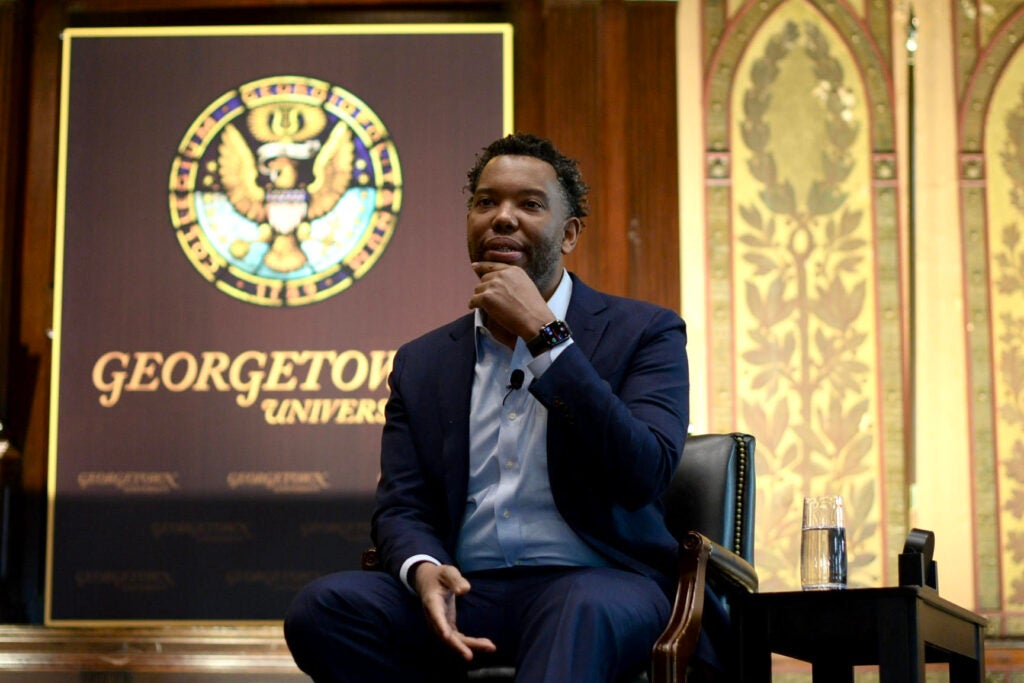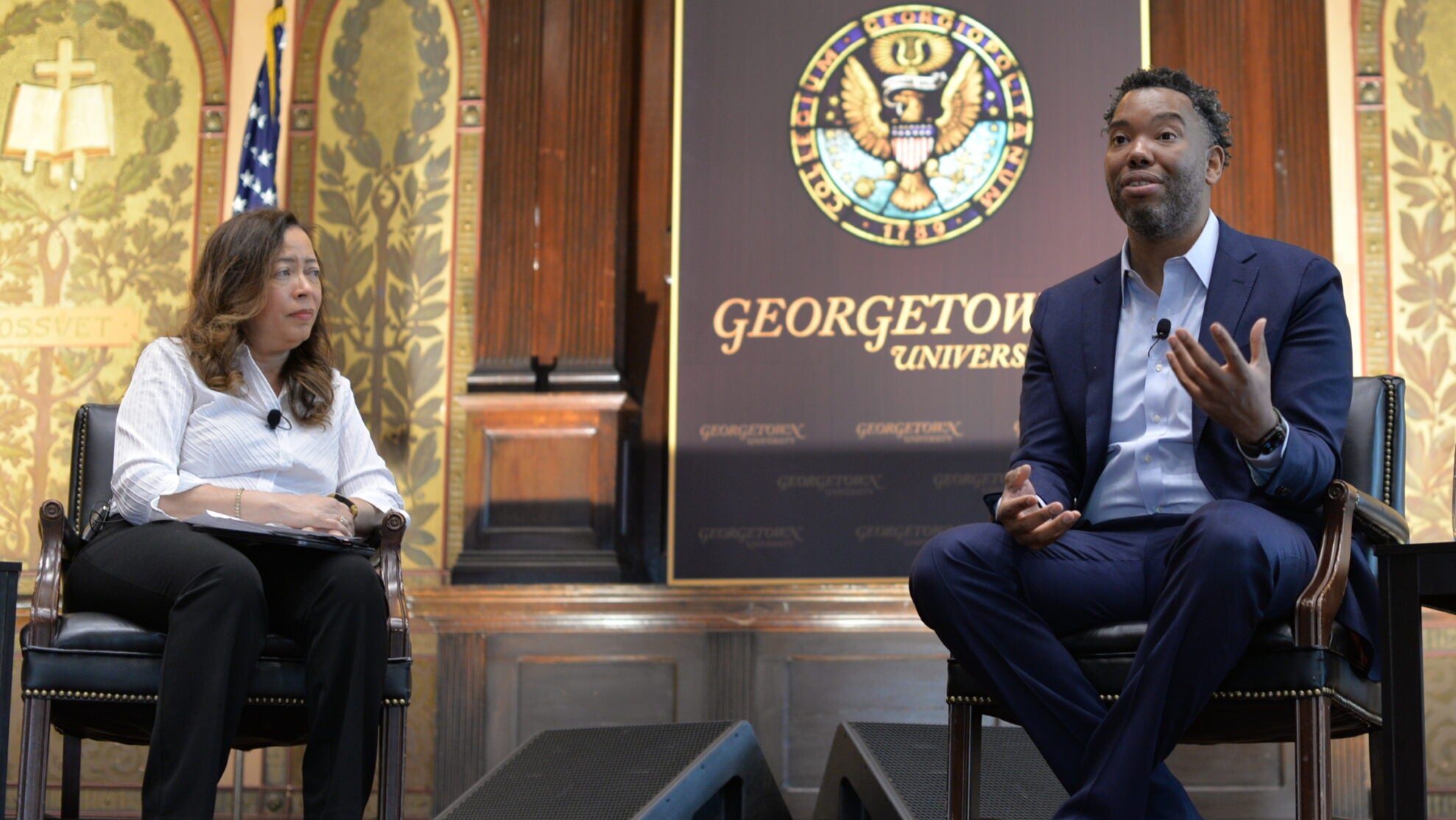Ta-Nehisi Coates Discusses Race and U.S. Politics with Georgetown Professor
Award-winning writer Ta-Nehisi Coates recently visited Georgetown and spoke to students in Gaston Hall. The screenwriter, novelist, essayist and journalist reflected on his body of work, from documenting the role of racism in American life in the pages of the Atlantic to penning his first screenplay, an adaption of his novel The Water Dancer.
Angelyn Mitchell, an associate professor in the Departments of English and African American Studies, sat down with Coates to discuss the motivations behind both his previous work and future endeavors. Mitchell, who was the founding director of the African American Studies Program from 2003-2013, and who regularly teaches an African American Studies course devoted to Coates’s work, asked the writer to reflect on his years of reporting and his pivot away from journalism.
Of her course, Mitchell explained, “Centering Coates’s We Were Eight Years in Power in my African American Studies course encourages and challenges my students to see American history anew. My students enjoy reading and discussing his essays because they raise and amplify many issues of current importance and concern, especially the significance of race in America.”
Coates, who played an integral role in driving the national conversation around race, racism and politics for a decade, left the Atlantic to pursue more creative work in 2018. For Coates, anytime he wrote about politics, he ultimately struck upon the vein of racism in American life. Through his writing, Coates has striven to show that to understand the country one must first understand slavery and all that flowed from it, including indelible components of America’s literature, music and popular culture.
“The crime of enslavement is at the root, which extends through the trunk and out into the branches and into the leaves of this country, and you cannot get away from it,” Coates says. “You take slavery away, you don’t have a country. You take away the labor and the profits that were made, and you don’t have a country.“
With the election of President Obama as the first Black man in the nation’s highest office, a widespread, post-racial optimism swept the country – one that elided the reality of slavery. According to Coates, many prominent thinkers and pundits wanted to relegate slavery to the periphery – one sphere of many in American life.
“My role was to convince other Americans that they live in a state erected by other human beings and not by Gods,” Coates says. “That they live in a place that manifests all the flaws and all the problems that other states built by human beings manifest. I don’t want you to feel bad. I want you to feel like I feel, which is to be human. To have some sort of humility about who you are and about your collective identity and how you walk through the world.”

Coates reflected on his research and writing around the Civil War and the Jim Crow-era South. Despite the research conducted and the facts marshaled forth, Coates ran up against an anti-historical undercurrent in America’s popular imagination, one that couldn’t reconcile the reality of the world with the world as they wanted it to be.
“It would be like someone insisting that one plus one is actually five. And what I eventually realized is that there is an architecture that has been erected in this world and in this country dedicated to telling people that one plus one is, in fact, equal to five,” Coates reflects. And to tell them that it is two is actually quite difficult, no matter how many facts I had assembled”
To continue his work, Coates left the field of journalism and the fray of day-to-day political spats and set his sights on the mythology underpinning American culture.
“It became clear, to me, that if we ever wanted to win this argument in any sort of long-term way then we had to recreate something, we had to recreate that place, that thing – the facts beneath the facts, and that is the place where your literature lives, where your movies live and, in many ways, that’s the place where your history lives.”
The Lecture Fund, a student-run organization that organizes speaking events on Georgetown’s campus to “enlighten, educate and, occasionally, entertain,” extended the invitation to Coates, managed the logistics and was the main sponsor of the event. The event was co-sponsored by the Department of History, the American Studies Program, the Department of English, the Department of African-American Studies, the Journalism Program and the Justice & Diversity in Action community.
–by Hayden Frye (C’17)
